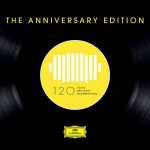

Performer: Jenny Lin
Format: FLAC (tracks)
Label: Dorian Sono Luminus
Catalogue: DSL92236
Release: 2019
Size: 1.94 GB
Recovery: +3%
Scan: yes
01. Grafe: Accretion
02. Messiaen: Ile de Feu 1 from 4 Etudes de rythme
03. Baez: Etude No. 1 “Corona”
04. Chin: Etude No. 6 ‘Grains’
05. Chien: To the Convergence
06. Hosokawa: Etude I-VI – 2 Lines (No. 1)
07. Healy: Etude for Melancholy Robots No. 3 “Trains”
08. Ligeti: Étude No. 1 ‘Désordre’
09. Cooper: Etude No. 1 “Unleashed”
10. Crawford Seeger: Study in Mixed Accents
11. Boyd: Lilac (Flower Catalog)
12. Debussy: 12 Etudes, L. 136, Livre 2, No. 11, Pour les arpèges composés
13. Andersen: Walk
14. Scriabin: Étude Op. 8 No. 2 in F sharp minor
15. Stafylakis: Piano Études, Book 1, No. 1, Obstinata 1 (Barbed Wire)
16. Rachmaninov: Étude-Tableau, Op. 33 No. 4 in A minor
17. Russ: Knuckles
18. Glass: Etude No. 13
19. Burtzos: Should the Wide World Roll Away
20. Chopin: Étude Op. 10 No. 4 in C sharp minor
The term étude first started to turn up in musical literature in the late 1700s, and came into common usage in the first half of the 19th centuryeither because of, or in close proximity to, the Paris Conservatoire, where the form was polished and promulgated. The notion of a piece of music exactingly engineered to promote some specific aspect of technique was nothing new; in her public presentations of ‘The Étude Project’, pianist Jenny Lin traces the concept back to Johann Sebastian Bachs Clavier-Übung. Countless composers have risen to the challenge of the étude. This album, the first documentation of a sweeping project conceived by Lin, includes some of the most famous examples Debussy, Scriabin, Rachmaninoff, Messiaen, Ligeti, and Glass alongside equally noteworthy contributions to the format by such mavericks as Ruth Crawford Seeger, Toshio Hosokawa, and Unsuk Chin. Lin further pairs each of her canonical selections with an entirely new work by a member of ICEBERG New Music, a determinedly heterodox collaborative of 10 gifted young composers who represent a broad range of stylistic inclinations, but who are united by their enduring faith in substance and craft.
Pianist Jenny Lin teaches a course on the history of the etude at the 92nd Street Y in New York, so presumably after completing volume 1 in her series, she still has more where these came from. It’s actually a bit surprising that the venerable etude hasn’t received this kind of treatment before; if you’re broad about the definition of an etude, the genre goes back to Bach’s Clavier-Übung and even before. Lin isn’t that comprehensive (at least here), but she does pair standard-repertory etudes by Debussy and Rachmaninov with contemporary works by members of a New York collective called ICEBERG New Music. The pieces turn out to work well together: the dual nature of the etude, as technical study and as program piece, remains the animating feature of the genre. Sample the humorously titled but elegant Piano Etude Book I, “No. 1, Obstinata (“Barbed Wire”)” of Harry Stafylakis for an especially effective contemporary treatment of the theme. Lin is already noted for her advocacy of contemporary music, but here she brings a greater historical perspective in an album, and one hopes a series of interest beyond contemporary music circles.



